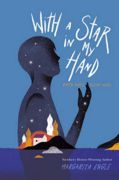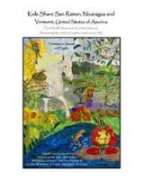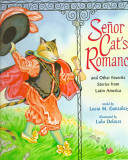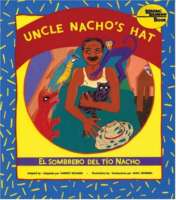
A novel in verse about the life and work of Ruben Dario, a Nicaraguan poet who started life as an abandoned child and grew to become the father of a new literary movement. Includes historical notes.

A novel in verse about the life and work of Ruben Dario, a Nicaraguan poet who started life as an abandoned child and grew to become the father of a new literary movement. Includes historical notes.

We unite children from the rural coffee-growing region of San Ramon, Nicaragua with their counterparts in Montpelier, Vermont. This workshop took place during the 2009-2010 school year, when Kids Share Workshops and Publishing Inc. traveled to a remote Nicaraguan cloud forest (that’s right, a cloud forest!), where a small community of coffee growers lives and works.

A collection of popular tales told to young children in places such as Argentina, Cuba, Colombia, Nicaragua, and Mexico.

When Ambrosia gives her Uncle Nacho a new hat, he tries to get rid of his old one, but to no avail. No matter what he does, the pesky hat keeps coming back to him. This classic folktale from the Puppet Workshop of Nicaraguan National Television, vividly illustrated by Mira Reisberg and presented in a bilingual edition, is a parable about the difficulties of making changes and shaking off old habits. The book includes an account of the origins of the story.
This book begin with historical overview of Nicaragua, including the reasons for recent political unrest. The first-person narratives of young refugees follow. All of the teens tell why they left their native countries, how they made their journeys, their experiences and difficulties in North America, and if they plan to return to their homelands. The introductions state that the young people were interviewed; it is unclear exactly when these conversations took place. In any case, the writing is choppy and fails to convey the urgency of the plight of refugees fleeing oppressors.